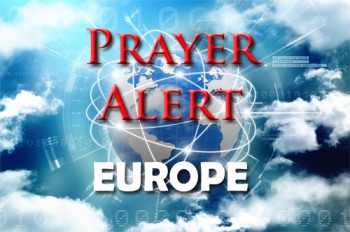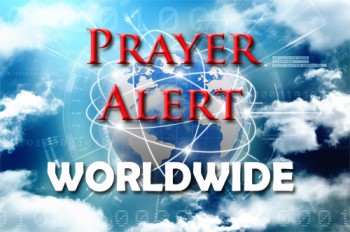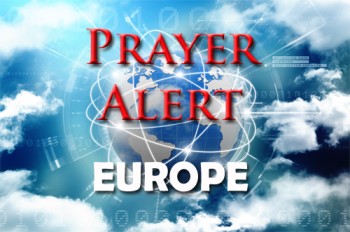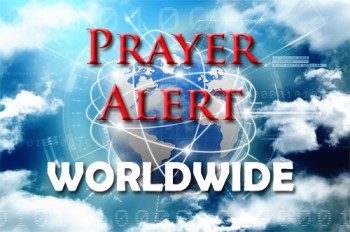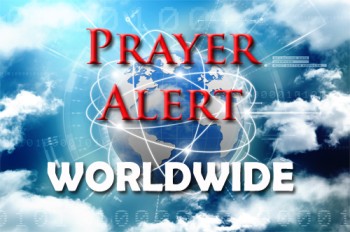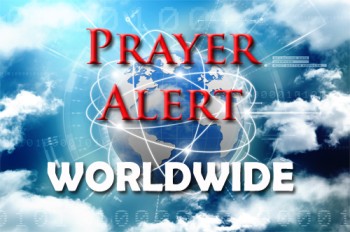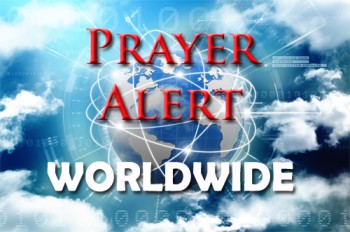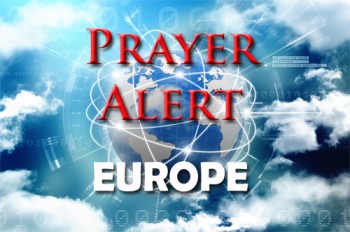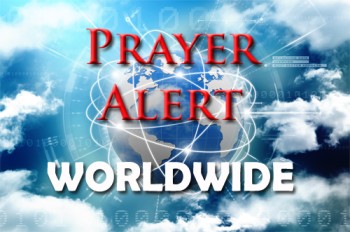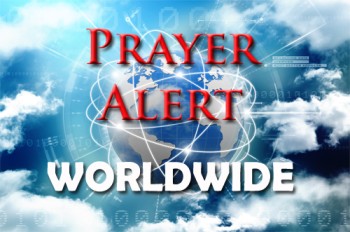Displaying items by tag: Donald Trump
Trump warns of ‘severe consequences’ if Putin refuses to agree to a ceasefire
Donald Trump has warned of ‘very severe consequences’ if Vladimir Putin refuses to agree to a ceasefire in Ukraine during their meeting in Alaska on 15 August. While not detailing the measures, Trump has previously suggested economic sanctions and hinted at a follow-up meeting that could include Volodymyr Zelensky. Concerns persist among European leaders and Kyiv that any peace proposal might involve Ukraine surrendering territory - particularly the Donbas region - in exchange for halting further Russian advances. In a high-level virtual call hosted by Germany, Zelensky, Trump, and key European leaders reaffirmed their commitment to Ukrainian sovereignty and continued pressure on Moscow. Zelensky dismissed Putin’s threats as bluffs, insisting that sanctions and united international resolve remain crucial. The Alaska summit is seen as both a diplomatic opportunity and a high-stakes gamble, with Ukraine’s territorial integrity and the broader stability of Europe hanging in the balance. Meanwhile, on 12 August Russian troops tried to make a big advance, possibly to put extra pressure on Kyiv to cede territory: see
China / USA: trade truce extended for a further ninety days
Donald Trump has extended the trade truce with China by another ninety days, narrowly avoiding a major escalation between the world’s two largest economies. The announcement came just hours before the previous deadline was to expire, averting a spike in US tariffs on Chinese imports and likely retaliatory action from Beijing. Both governments confirmed the extension, maintaining existing terms while allowing more time for negotiation. This delay is seen as a temporary relief for global markets and US companies which depend on trade with China. Earlier trade disputes saw tariffs soar to triple digits, severely disrupting international commerce and sparking volatility in financial markets. Although current tariff levels remain high, they are significantly lower than the peak rates imposed in May. Talks between Washington and Beijing continue, with hopes for a more permanent resolution and a possible summit between Trump and Xi Jinping later this year. However, key issues remain unresolved.
Ukraine: Trump claims ‘great progress’ in talks with Putin
Donald Trump has described talks on 6 August between his envoy Steve Witkoff and Vladimir Putin as ‘highly productive’, claiming that ‘great progress’ has been made toward ending the Ukraine war. The Kremlin issued a vague statement confirming the exchange of ‘signals’ but did not give further details. The meeting occurred days ahead of Trump’s ceasefire deadline, amid mounting frustration over stalled peace efforts. Volodymyr Zelensky and European leaders were briefed on the talks and reiterated the need to end the war. Despite Trump’s threats of increased sanctions, including raising the tariff on India to 50% for buying Russian oil, Russia has continued its attacks on Ukrainian cities. Three years into the invasion, peace talks have repeatedly failed, and Russia’s preconditions remain unacceptable to Kyiv. Meanwhile, the USA has approved $200 million in military support to Ukraine, with Trump still open to meetings with both Putin and Zelensky. The humanitarian toll of Russian strikes remains devastating and ongoing.
India: relationships with the USA take a downward turn
US-India relations entered a turbulent phase when Donald Trump tore into India for its continued oil imports from Russia and slow progress on trade negotiations. Formerly close to Prime Minister Narendra Modi, Trump, accusing India of funding Russia’s war in Ukraine, has vowed to raise tariffs on Indian exports to 50%. India regards its Russian energy imports as economically necessary; it has a longstanding relationship with Russia and is among the largest importers of Russian oil. Modi’s government has so far resisted Trump’s pressure, particularly over opening up US access to the heavily protected agriculture and dairy sectors. In response to Trump’s belligerent language, Modi has called on citizens to buy only Indian-made goods, leading to greater economic self-reliance. Political commentators note that it will be very difficult for Modi to give any large concessions in a trade deal, given the growing anger within India towards Trump.
USA: leading Republican breaks with Trump over refusal to release Epstein files
A political storm is brewing in Washington as divisions deepen over the Trump administration's refusal to release files related to deceased sex offender Jeffrey Epstein. House speaker Mike Johnson, a close Trump ally, broke ranks by expressing public support for the files' release, citing the need for transparency. However, he later voted to block a Democrat-led resolution calling for that very action. The justice department, led by attorney general Pam Bondi, denies the existence of a client list in the files, and maintains the matter is closed - sparking outrage among both Democrats and Trump’s MAGA supporters, who had been promised accountability. While bipartisan lawmakers are pressing for a House vote, Democrats in Congress and the Senate are pushing legislation to preserve and disclose all Epstein-related documents. The issue has become a flashpoint for demands for transparency and oversight, exposing cracks within the GOP and giving Democrats an opportunity to frame themselves as champions of accountability and reform.
Gaza: Trump says Israel has agreed to a ceasefire
Donald Trump has announced that Israel has agreed to the ‘necessary conditions’ for a sixty-day ceasefire in Gaza, pending Hamas’s approval. While the details remain vague, Trump said that the USA, along with Qatari and Egyptian mediators, will work toward ending the war. Hamas stated it is open to a deal if it guarantees an end to hostilities, the withdrawal of Israeli forces, and humanitarian relief. Israel’s key demand remains the release of most, if not all hostages held in Gaza. Hamas representatives in Cairo are reportedly negotiating, though insiders describe the talks as stagnant. Disagreements persist over the absence of a guarantee for permanent peace and continued military presence in Gaza. Meanwhile, the conflict continues: Israel has ordered evacuations in northern Gaza ahead of increased military action, and at least twenty Palestinians were killed in an Israeli air strike on a seafront café on 30 June. A previous attempt at a ceasefire failed in March. Trump's upcoming meeting with Netanyahu may prove decisive.
Colombia: reversing the migration trend
In the coastal town of Necocli, migrant families are now returning south after failed attempts to enter the USA, marking a reversal of a once-dominant northward migration trend. Harsh immigration policies under Donald Trump, including the withdrawal of the asylum app and increased military presence along the border, have left many stranded in Mexico or deterred from even attempting the journey. Some, like Luis Angel Yagua Parra, braved the deadly Darién Gap only to be forced back. Others, including a Venezuelan couple whose child was born in the USA, have left voluntarily, fearing deportation. Aid workers in Necoclí report a growing daily influx of returnees, but dwindling foreign support has led to closures of humanitarian organisations. Pastor Jose Mendoza’s food hall, struggling to meet rising needs, might have to close due to a lack of funding. For families like Marisela Bellorin’s, who have been homeless for months, survival is precarious. As the ‘American dream’ fades, many migrants are choosing new destinations such as Chile, in search of safety and stability.
NATO summit reaffirms collective defence, omits criticism of Russia
NATO allies, including the USA, have reaffirmed their ‘ironclad commitment’ to collective defence at a brief summit in The Hague. The final five‑paragraph communiqué emphasised unity, describing Russia as a ‘long‑term threat’ but stopping short of explicitly condemning its invasion of Ukraine, marking a shift from prior statements. In the only reference to the war, it said: ‘Allies reaffirm their enduring sovereign commitments to provide support to Ukraine, whose security contributes to ours.’ It also reaffirmed NATO’s founding tenet, that an attack on one is an attack on all, despite Trump hinting at differing definitions. A notable commitment was a pledge to raise defence investment to 5% of GDP by 2035. The toned‑down language and ambitious new spending target reflect tensions within the alliance. Meanwhile, on 24 June seventeen people were killed and over a hundred injured in a daytime Russian airstrike: see
Iran: Trump admits to doubt on damage to Iran’s nuclear sites
After a US bombing campaign targeting Iran’s nuclear facilities, Donald Trump and US defence secretary Pete Hegseth offered conflicting assessments of its impact. At first, Trump claimed total obliteration, later suggesting the damage might have been ‘moderate’ or ‘severe’, while a leaked Pentagon assessment concluded the setback was only a matter of months. CIA director John Ratclife insisted that critical sites like Fordow had been rendered inoperable for years, while Israel announced that the strikes had pushed Iran’s programme back significantly. Meanwhile, questions emerged about Iran’s highly enriched uranium, some of which appears to have been moved prior to the attacks. The IAEA warned that different estimates of how long it will take Iran to rebuild distracted from the larger issue of long‑term non‑proliferation, and the risk of Iran expelling inspectors and leaving the non-proliferation treaty altogether.
Trump’s strikes on Iran harden North Korea’s nuclear resolve
Donald Trump’s decision to authorise airstrikes on three Iranian nuclear facilities has strengthened North Korea’s belief that nuclear weapons are vital for regime survival. While both nations seek deterrence, North Korea’s approach is rooted in preserving the Kim regime itself, backed by its extensive nuclear and missile arsenal. A US strike on that arsenal is highly unlikely, due to the country’s ability to target Seoul and US interests in the Indo‑Pacific. Its deeply buried nuclear facilities and alliances with Russia and China further complicate any potential attack. Experts have warned that Trump’s decision has had a significant impact on Pyongyang’s foreign policy, strengthening its belief that possessing nuclear weapons guarantees survival. With deepening mistrust of the USA, North Korea will be even less likely than before to change its belligerent attitude.
